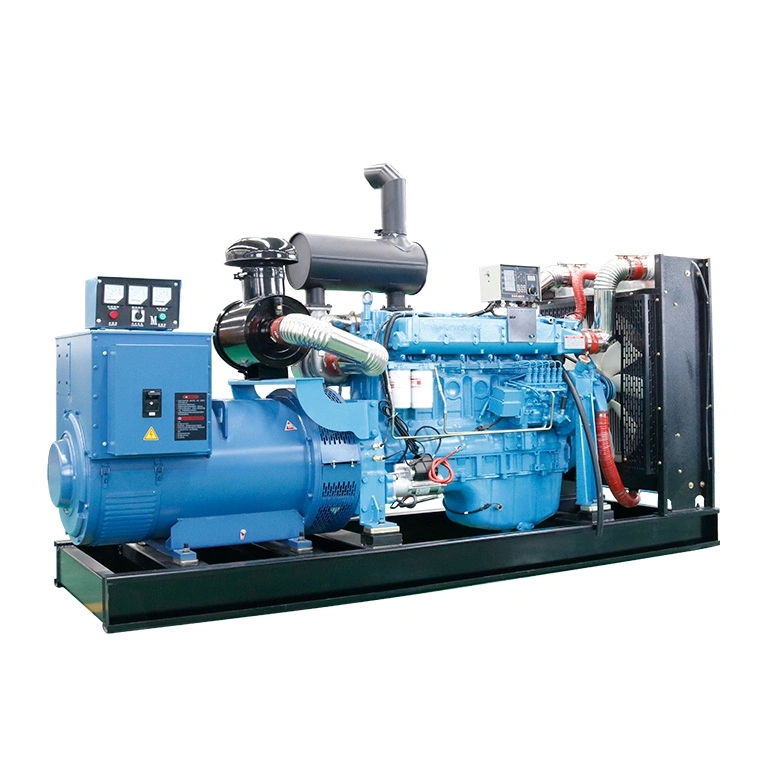Maximizing Efficiency and Reliability The Essential Guide to Diesel Generators for Small Businesses

Introduction
In today's fast-paced world, small businesses are constantly seeking ways to ensure operational continuity and reliability. Power outages can be detrimental to businesses of all sizes, leading to financial losses and potential damage to equipment. To combat this issue, many small businesses are turning to diesel generators as a reliable source of backup power. In 150KW Diesel Generator For Sale , we will explore the benefits of diesel generators for small businesses, how they work, key considerations when choosing a generator, maintenance tips, and more.
Benefits of Diesel Generators for Small Businesses
1. Reliability: Diesel generators are known for their reliability and durability, making them an ideal choice for small businesses that cannot afford downtime. Unlike gasoline generators, diesel generators are less flammable and have a longer lifespan, ensuring that they can provide backup power when needed most.
2. Fuel Efficiency: Diesel generators are more fuel-efficient compared to gasoline generators, providing cost savings in the long run. This is especially important for small businesses looking to maximize their operational budget and reduce overhead costs.
3. Power Output: Diesel generators are capable of producing a high power output, making them suitable for powering essential equipment and machinery during a power outage. Small businesses can rely on diesel generators to maintain critical operations and prevent disruptions to their workflow.
4. Low Maintenance: Diesel generators require minimal maintenance compared to other types of generators, reducing the overall operational costs for small businesses. With proper care and regular maintenance, diesel generators can provide reliable backup power for years to come.
How Diesel Generators Work
Diesel generators operate on the principle of converting mechanical energy into electrical energy using a diesel engine. The process begins with the diesel engine igniting diesel fuel in the combustion chamber, resulting in the generation of mechanical energy. This mechanical energy is then converted into electrical energy through an alternator, producing the required power output for the connected load.
Key Components of a Diesel Generator:
1. Diesel Engine: The diesel engine is the heart of the generator, responsible for converting fuel into mechanical energy through combustion.
2. Alternator: The alternator converts the mechanical energy generated by the diesel engine into electrical energy, providing the output voltage and frequency required for powering electrical devices.
3. Fuel Tank: The fuel tank stores the diesel fuel needed to power the generator, ensuring a continuous fuel supply during operation.
4. Cooling System: The cooling system regulates the temperature of the diesel engine, preventing overheating and ensuring optimal performance.
5. Control Panel: The control panel is the interface through which users can monitor and control the generator's operation, including starting/stopping the generator, monitoring fuel levels, and adjusting settings.
Choosing the Right Diesel Generator for Your Small Business
When selecting a diesel generator for your small business, it is essential to consider several key factors to ensure that you choose the right generator that meets your specific needs and requirements:
1. Power Output: Determine the power requirements of your small business by calculating the total wattage of the equipment and devices that need to be powered during an outage. Choose a diesel generator with sufficient power output to meet these requirements.
2. Run Time: Consider the expected duration of power outages in your area to determine the required run time of the generator. Select a diesel generator with a fuel tank capacity that can provide continuous power for the necessary duration.
3. Noise Level: Evaluate the noise level of the diesel generator to ensure that it complies with local regulations and does not cause disturbances to employees or neighboring businesses.
4. Size and Portability: Choose a diesel generator that is appropriately sized for your small business space and easy to transport if needed. Consider factors such as weight, dimensions, and mobility options.
5. Fuel Efficiency: Opt for a diesel generator that is fuel-efficient to reduce operational costs and minimize environmental impact. Look for generators with advanced fuel injection systems and energy-saving features.
Maintenance Tips for Diesel Generators
Proper maintenance is crucial to ensure the reliable performance and longevity of your diesel generator. Follow these maintenance tips to keep your generator in optimal condition:
1. Regular Inspections: Conduct routine inspections of the diesel generator, including checking for leaks, loose connections, and signs of wear and tear. Address any issues promptly to prevent further damage.
2. Oil and Filter Changes: Regularly change the oil and filters in the diesel generator according to the manufacturer's recommendations. Clean oil and filters help maintain the efficiency of the engine and prevent premature wear.
3. Fuel Quality: Use high-quality diesel fuel with the appropriate additives to ensure optimal performance and prevent fuel-related issues in the generator.
4. Battery Maintenance: Inspect and maintain the batteries in the diesel generator to ensure proper charging and functionality. Replace old or faulty batteries as needed to avoid starting issues.
5. Load Testing: Periodically test the diesel generator under load conditions to verify its performance and capacity to handle the connected load during an outage.
6. Professional Service: Schedule regular maintenance and service appointments with a qualified technician to inspect and service the diesel generator. Professional servicing can help identify potential issues early and prevent unexpected breakdowns.

Conclusion
In conclusion, diesel generators are an essential investment for small businesses seeking to ensure operational continuity and reliability during power outages. With their reliability, fuel efficiency, and high power output, diesel generators are a cost-effective solution for powering essential equipment and machinery when the grid fails. By understanding how diesel generators work, choosing the right generator for your small business, and following proper maintenance practices, you can maximize the efficiency and longevity of your backup power system. Invest in a diesel generator today to safeguard your small business against the uncertainties of power outages and maintain uninterrupted operations.
